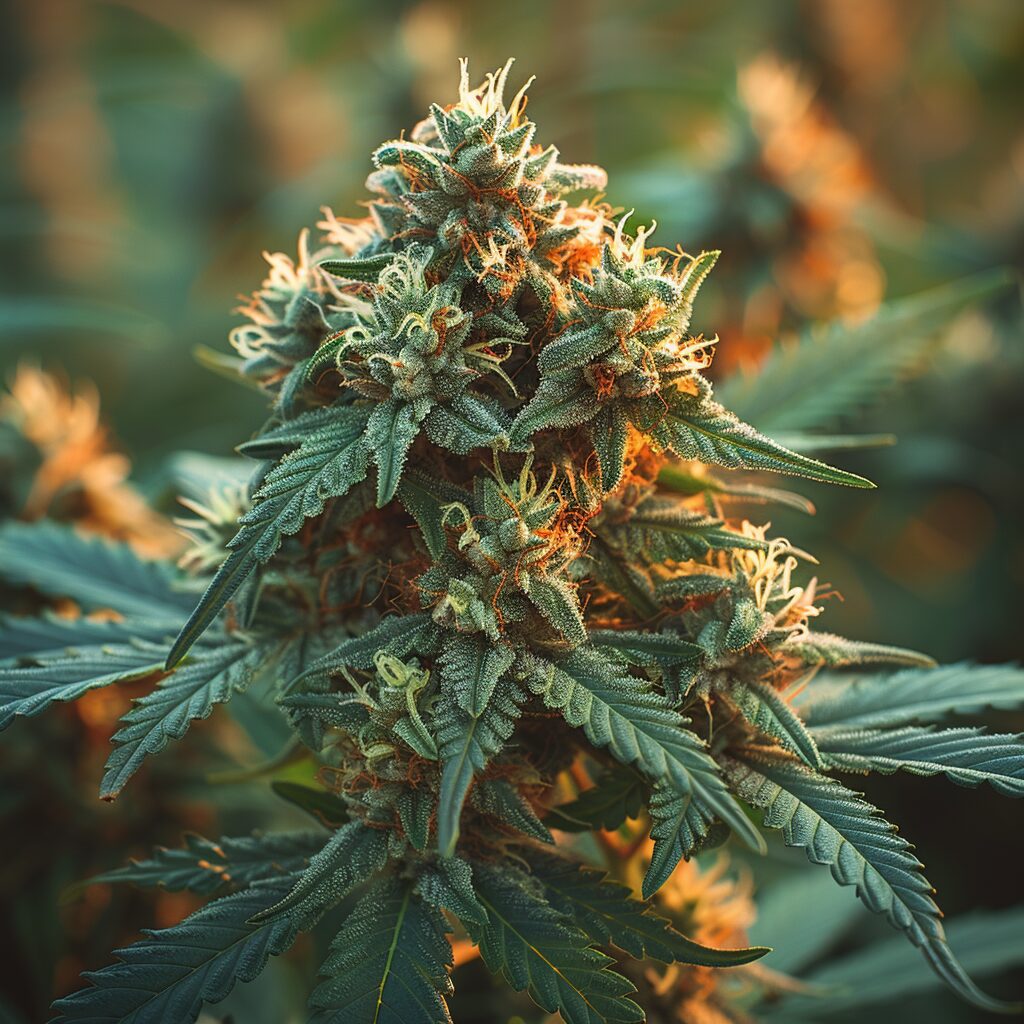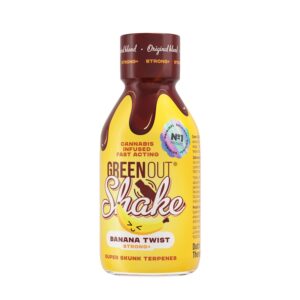THC withdrawal effects of marijuana can vary depending on a person's individual characteristics and the degree and duration of substance use (occasional use vs. addiction), and it is these factors that determine both the time it takes to quit and the extent of symptoms.
Have you ever tried to quit cannabis and felt that your body was rebelling against the decision? For millions of people around the world, including Poland, quitting cannabis is not only a matter of willpower, but also a physical and mental challenge. In an era of increasing legalization and debate over the medical use of marijuana, understanding the timing of cannabis withdrawal and the effects of abstinence becomes crucial.
This article, based on the latest 2025 research, expert analysis and user testimonials, will help you unravel the mysteries of withdrawal syndrome. You will learn how long it takes for the body to recover, what symptoms may surprise you and how to effectively manage the process. If you are looking for reliable information about marijuana withdrawal symptoms, you are in the right place.
What is Abstinence Syndrome After Marijuana and Why Does It Occur?
Cannabis withdrawal syndrome, also known as cannabis withdrawal syndrome, is a set of physical and psychological symptoms that occur after the sudden cessation or significant reduction of cannabis consumption. The main culprit is THC (tetrahydrocannabinol), the psychoactive component of cannabis, which accumulates in fatty tissue and is slowly released into the bloodstream. This makes the detox process longer than with rapidly metabolized substances like alcohol or nicotine.
According to a study published in the American Journal of Psychiatry (Budney et al., 2004), withdrawal symptoms are real and affect the endocannabinoid system, which regulates mood, appetite, sleep and stress responses. When THC ceases to stimulate CB1 receptors in the brain, the body must restore the natural balance, leading to temporary dysfunction. In the context of recreational use, as described in a 2018 Polish psychiatric review (Klakiewicz and Jasinska), long-term effects can include changes in the frontal cortex, impairing cognitive function. This is not just a "hangover" - it's an adaptive response that, in some people, can reveal underlying health problems, such as chronic respiratory inflammation or an increased risk of psychosis.
In 2025, with more and more research on medical marijuana, experts emphasize that abstinence syndrome is classified in the DSM-5 as a disorder, especially in addicts. Ignoring it can lead to relapse, depression or even suicide attempts, especially in adolescents - research shows a positive correlation between cannabis use and such behavior (Degenhardt et al., 2011). Understanding the mechanism is the first step to effective coping - remember, you are not alone, and support from professionals can significantly shorten the period.
Marijuana withdrawal time - how long do the effects of marijuana withdrawal last for a person who uses it occasionally?
What do we mean by occasional marijuana use?
Its consumption or smoking is done without any particular regularity or frequency. It also lacks its compulsive nature, that is, the person does not feel the need to take it, and the process itself takes place under controlled conditions limited to certain circumstances or occasions. People who take marijuana occasionally usually treat it as a form of relaxation, entertainment or experimentation, and their attitude to taking it may be similar to the way some people consume alcohol, for example, at parties or occasional, non-cyclical social gatherings.
Cannabis withdrawal in this case does not bring drastic physical or psychological symptoms. More often they will be referred to as recovery time after marijuana. Difficulties may instead be associated with the possible simultaneous consumption of alcohol, combining marijuana and tobacco or drugs that may interact with them.
For a person who uses marijuana occasionally, the duration of withdrawal effects may depend on personal characteristics, but usually The process is much smoother and shorter relative to the effect of withdrawal on the body, a person who uses it more frequently and regularly. It is difficult to draw a precise line between occasional marijuana use and regular use, which may have to do with the difficulty of determining whether emerging symptoms are already indicative of addiction or not yet.
The mildest effects of marijuana withdrawal after a single intake are the complete absence of symptoms or states similar to the effects after alcohol intoxication - headaches, feelings of restlessness, irritability, lack of appetite, problems sleeping. This stage can last up to 24-72 hours.
When marijuana consumption is more frequent, longer but irregular, or short-lived yet intense, symptoms can last up to 2-4 weeks. They include the previously mentioned physical and psychological withdrawal symptoms, but anxiety and mood swings can also occur. After this period, all the effects of marijuana withdrawal should pass.
Marijuana withdrawal time - how long do the effects of marijuana withdrawal last for a person who is addicted?
The effects of marijuana withdrawal will definitely be more difficult for people who are already addicted to it.
By addiction we mean lack of control over its use, a difficult to control need to consume it, that is, very frequent and regular consumption of an addictive nature and a number of symptoms that carry long-term consequences for health and social life. Unfortunately, in this case, rehabilitation after marijuana may require the support of specialists (psychiatrist, psychotherapist), since it is qualified as a mental disorder.
Detoxing from marijuana requires the body to readjust to the absence of the substance to which it has become accustomed (THC). This element requires the greatest effort on the part of the addict and can last from several weeks to several months.
The first stage of marijuana withdrawal can look similar to that of a person who uses marijuana frequently but occasionally, except that the symptoms can be far more intense.
During the first 2-3 days, there may be Headaches, hand tremors, depression-like states interspersed with euphoria, anorexia, severe sleep disturbances, anxiety, feelings of confusion and confusion.
The peak is on day 4-5When all the effects are felt with redoubled force. This is when addicts most often realize the difficulties ahead of them and may opt for therapeutic support.
The following weeks are associated with subsequent physical symptoms of marijuana withdrawal - nausea, vomiting, increased sweating may occur, as well as psychological symptoms: impaired concentration, reduced motivation and persistent thoughts related to the desire to relapse. This period is associated with strong emotional states, followed by a slow calming of the body and recovery.
People who were heavily dependent, including those who required medical supervision, May experience such states for up to a year after stopping marijuana use.
Most Common Abstinence Symptoms: Physical and Mental Challenges
Marijuana withdrawal symptoms They are divided into physical and mental, and their intensity increases with the level of addiction. Physically, you may experience headaches, nausea, muscle tremors, hyperhidrosis, fatigue, dizziness and appetite problems - the body adjusts to the lack of stimulation, which is similar to the flu.
Studies indicate that marijuana smoke is more irritating than tobacco smoke, which can cause chronic cough and respiratory obstruction, exacerbating symptoms in smokers.
The psychological effects are often more troublesome: irritability, anxiety, depression, insomnia, lack of motivation (amotivation syndrome) and severe cravings. Users report "brain zaps," panic attacks and derealization, lasting weeks. In extreme cases, especially in the genetically susceptible, psychotic episodes or worsening of schizophrenia can occur.
These symptoms affect daily life: sleep disturbances reduce productivity, anxiety leads to isolation, and lack of appetite leads to malnutrition. Keep in mind that while they are not life-threatening, they may require intervention if they last longer than a month.
Factors Affecting the Time and Intensity of Withdrawal
There is no universal timeline - personal factors determine everything. Frequency and dose: daily users have longer symptoms than occasional users. Age and gender: young people recover faster, but teenagers risk delayed social maturation. Metabolism and body weight: THC in fat prolongs detox in obese people. Coexisting addictions (e.g., alcohol, tobacco) complicate the process, increasing the risk of relapse.
Genetics play a key role - gene variants like ATT1 increase susceptibility to more severe symptoms. Environment: social support shortens the timeline, while stress lengthens it. In 2025, research highlights that mode of consumption (smoking vs. edibles) affects intensity - edibles release THC more slowly, prolonging detox. Monitor these factors to better prepare for withdrawal.
How to Deal with the Effects of Withdrawal: Practical Tips and Strategies
Dealing with the effects of marijuana withdrawal requires a multi-pronged approach. First, seek professional help: cognitive-behavioral therapy (CBT) helps with cravings, and in severe cases, medication for anxiety or insomnia (under the guidance of a psychiatrist). Support groups, like Narcotics Anonymous, offer motivation.
Natural methods: regular exercise (running speeds up the elimination of THC), a diet rich in antioxidants (fruits, vegetables) and hydration. Relaxation techniques - meditation, yoga or aromatherapy - relieve anxiety. Avoid triggers: alcohol, tobacco and environments associated with use. Users share experiences: one described how after 5 days of severe symptoms, he persevered through physical activity. Longer term, focus on recovery: after months of abstinence, cognitive function returns, but relapses happen in 50% people - build habits to prevent them.
Benefits of Marijuana Withdrawal: the Path to a Better Quality of Life
Despite the difficulties, withdrawal has numerous benefits. Mental health improves - reducing the risk of depression and anxiety, studies show. The respiratory system recovers, reducing coughs and infections. Cardiovascularly, it lowers the risk of strokes. Financially, you save money; socially, you gain mental clarity and motivation.
After a year of abstinence, IQ and memory return to normal, and energy increases. It's an investment in a longer life - a 2025 study confirms that ex-users live healthier lives.
Frequently Asked Questions About Marijuana Withdrawal Time
How long does it take to detox from marijuana in the body?
THC is detectable in urine for up to 30 days in occasional users and up to 90 days in chronic users, but symptoms resolve more quickly - usually 1-4 weeks.
Are withdrawal symptoms from marijuana dangerous to health?
Not directly, but can lead to depression or anxiety. In severe cases, seek medical help.
What are the first symptoms of marijuana withdrawal?
In 1-3 days: headaches, irritability, insomnia and lack of appetite. Peak on day 4-6.
Does marijuana cause physical dependence?
Yes, moderate - abstinence symptoms confirm this, although weaker than with opioids.
How to speed up the process of marijuana withdrawal?
Exercise, drink water, eat healthy, avoid alcohol. Therapy and support speed up recovery.
Effects of marijuana withdrawal vs. scientific research
The duration of marijuana withdrawal depends on a number of factors - frequency and amount of marijuana use, personal characteristics (susceptibility to addiction and ease of withdrawal), co-occurring addictions, medications taken, social support and many other circumstances.
In recent decades, researchers have paid a lot of attention to THC withdrawal symptoms, but due to the multitude of factors that occur -. the effects of marijuana withdrawal on specific individuals can run very differently and be determined by both physical and environmental factors.
Budney AJ, Hughes JR, Moore BA, Vandrey R. Review of the validity and significance of cannabis withdrawal syndrome. Am J Psychiatry. 2004;161:1967-1977.
Haney M, Ward AS, Comer SD, Foltin RW, Fischman MW. Abstinence symptoms following smoked marijuana in humans. Psychopharmacology (Berl) 1999;141:395-404.
Kouri EM, Pope HG. Abstinence symptoms during withdrawal from chronic marijuana use. Exp Clin Psychopharmacol. 2000;8:483-492.








